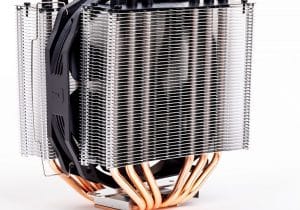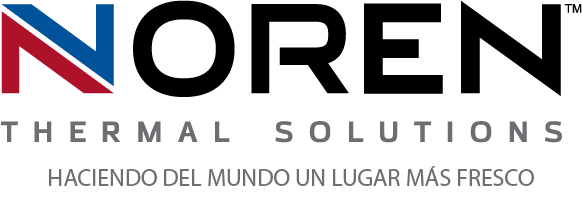 Eco-friendliness, particularly in the form of green energy and green business initiatives, used to seem like a pipe dream that only the largest companies could afford to chase. However, in recent decades, pursuing greener operations and reducing environmental footprints has become necessary for companies in nearly every industry, and for a wide variety of reasons. From consumer demands for more conscientious business practices to regulations that make eco-friendliness mandatory, companies continue to seek ways to adapt their operations to fit the new, greener standard. In the realm of electrical thermal management, that has often taken the form of upgrading common cooling solutions to more eco-friendly heat exchangers.
Eco-friendliness, particularly in the form of green energy and green business initiatives, used to seem like a pipe dream that only the largest companies could afford to chase. However, in recent decades, pursuing greener operations and reducing environmental footprints has become necessary for companies in nearly every industry, and for a wide variety of reasons. From consumer demands for more conscientious business practices to regulations that make eco-friendliness mandatory, companies continue to seek ways to adapt their operations to fit the new, greener standard. In the realm of electrical thermal management, that has often taken the form of upgrading common cooling solutions to more eco-friendly heat exchangers.
Rethinking electrical thermal management
There are many different areas where companies can potentially make their operations friendlier to the surrounding environment, but thermal management has always been one of the more impactful ones. That’s because traditional electrical cooling solutions were often in the form of HVAC or air compression technologies, both of which can have notoriously high impacts on the environment. For instance, they require large amounts of energy to keep them running continuously, and may use harmful chemicals (such as Freon) that could pose a further threat to the immediate environment. To eliminate these factors, heat exchangers take a completely different approach to electrical cooling – one that relies on more natural methods of preventing electrical overheating.
How to make electrical cooling greener
As companies in all industries have grown to rely more heavily on technology for all sorts of processes, the impacts of those technologies and their associated thermal management systems has grown increasingly more important. This has forced the need for companies and tech designers to think beyond the traditional cooling methods they’re used to and find more innovative, streamlined, and efficient ways of keeping electrical systems cooled. As an alternative designed specifically to meet this need, heat exchangers have helped make electrical cooling greener in several important ways. Most importantly, they don’t rely on traditional cooling methods to prevent electrical overheating, but rather on more natural methods of transferring waste heat in a continuous and easily manageable cycle.
The other advantages of modern heat exchangers
The defining characteristic of modern heat exchangers is that they transfer electrical waste heat instead of trying to forcibly lower the temperatures within electrical enclosures. This means they don’t rely on processes like chilling air and circulating it, nor do they require large amounts of energy to continue transferring waste heat. These alone have proven significant qualities in making most electrical cooling processes more streamlined and eco-friendly. For more information about the eco-friendly ways heat exchangers prevent electrical overheating, call Noren Thermal Solutions in Taylor, TX, at 866-936-6736.







